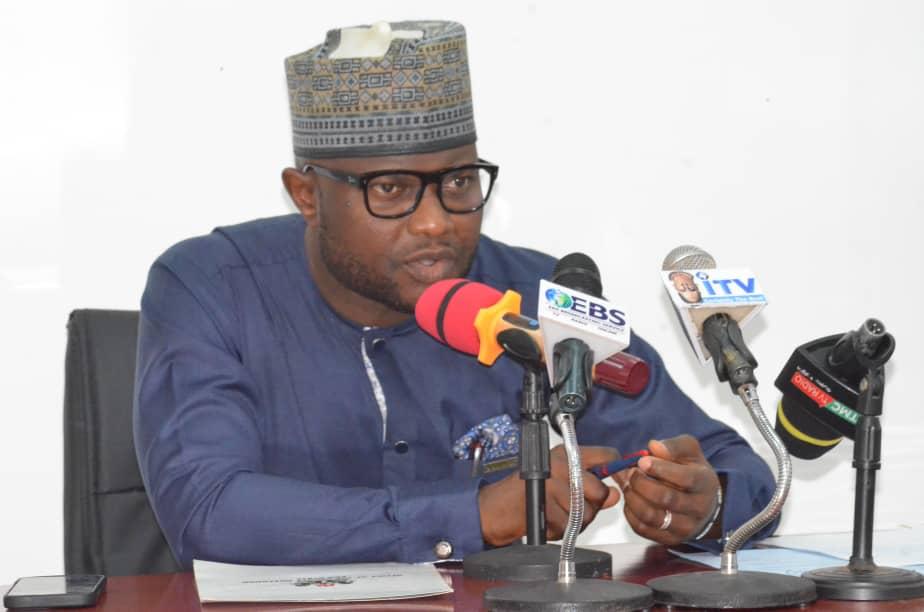News
FG Raises Electricity Tariff For Customers Enjoying 20-hour Power Supply

The Nigerian Electricity Regulatory Commission has approved an increase in electricity tariff for customers under the Band A classification.
The Vice Chairman, NERC, Musliu Oseni, said the increase will see the customers paying N225 kilowatt per hour from the current N66.
Customers under Band A are those who enjoy 20 hours of electricity supply daily.
Speaking at a press conference in Abuja on Wednesday, Oseni said customers in Band A represent a 15 per cent of the 12 million electricity customers in the country.
READ ALSO: Amotekun Arrests Man For Keeping Housewife As Sex Slave
He added that the commission had also downgraded some customers on the Band A to Band B due to the non-fulfillment of the required hours of electricity provided by the electricity distribution company.
He said, “We currently have 800 feeders that are categorised as Band A, but it will now be reduced to under 500. This means that 17 per cent now qualify as Band A feeders. These feeders only service 15 per cent of total electricity customers connected to the feeders.
“The commission has issued an order which is titled ‘April Supplementary Order’ and the commission allows a 225 kilowatt per hour.”
He added that the review will not affect customers on the other bands.
READ ALSO: UK Varsities To Layoff Workers, As Enrolment By Nigerians, Others
Citing sources, Bloomberg had on Tuesday reported that power companies will be allowed to raise electricity prices to N200 ($0.15) per kilowatt-hour from N68 for urban consumers.
It quoted people in the presidency with knowledge of the matter saying this was in a bid to attract new investment and slash about $2.3 billion spent to cap tariffs.
According to the news agency, “Nigerians will now have to pay $2.42 per one million British thermal units from the previous rate of $2.18 MMBtu.”
The development comes amid Monday’s announcement by the Nigerian Midstream and Downstream Petroleum Regulatory Authority of an increase in the price of natural gas, which is used to generate more than 70 per cent of electricity in Nigeria.
VANGUARD
News
YULETIDE: UBTH CMD Charges Nigerians To Be Hopeful In Coming Year

The Chief Medical Director of the University of Benin Teaching Hospital (UBTH), Prof. Idia Ize-Iyamu has urged Nigerians to remain optimistic about the upcoming year, despite current challenges.
Prof. Ize-Iyamu expressed optimism that the coming year would bring improvements for everyone.
The CMD made these remarks during the Nine Lessons and Carol night /End of Year Party organized by UBTH for staff and students held in Benin.
Prof. Ize-Iyamu encouraged everyone to place their trust solely in Christ to overcome the numerous challenges facing the country.
READ ALSO:UBTH CMD Laments Inadequate Heath Workers, As Minister Promises Increased Funding
She expressed her gratitude to the hospital community for their support during her first four months in office.
Prof. Ize-Iyamu assured them that the coming years hold many opportunities and that hope in Christ would transform lives daily, just as Christ’s birth brings joy and is the reason for the season.
She also extended her appreciation to everyone in the spirit of the season.
READ ALSO:UBTH Marks 2023 World Antimicrobial Resistance Awareness Week
“I want to appreciate everyone in the spirit of the season. Our commitment to excellence and professionalism remains at UBTH.
“UBTH CARES and just like Christ cares. As we celebrate Christ and the season. Let’s hope on him. When you have Christ, you have hope.We are hopeful that the coming year will be better as a people and institution,” Ize-Iyamu said.
The ceremony’s highlight featured a visit to the hospital wards where the CMD distributed gifts to patients and newborns, with management, staff, and students in attendance.
News
Christmas: Edo Deputy Gov Preaches Unity, Hope

The Deputy Governor of Edo State, Hon. Dennis Idahosa has called on residents of the state to embrace unity, love, and renewed hope as Christians celebrate Christmas.
In a statement by his Chief Press Secretary, Mr Friday Aghedo, Idahosa emphasised that Christmas represents values that unite people, regardless of tribe, religion, or politics, promoting compassion, generosity, and peace.
He described the birth of Jesus Christ as a timeless reminder of the values of peace, sacrifice, and compassion, which he said are critical to societal growth and harmonious coexistence.
He urged Edo people to take advantage of the festive season to strengthen communal ties, extend goodwill to the less privileged, and recommit themselves to the collective development of the state.
READ ALSO:Edo Dep. Gov. Idahosa Inducted, Bestowed With Rotary Premium Award
The deputy governor further said that Christmas underscores the importance of shared humanity and collective responsibility in building a prosperous society.
“Christmas is a season that reminds us of the power of hope and shared humanity.
“As a people, we must continue to stand together, support one another, and work collectively for a more prosperous Edo State,” Idahosa said.
READ ALSO:Okpebholo, Idahosa Bag UNIBEN Distinguished Service, Leadership Awards
He reassured residents of the state of the firm commitment of the Governor Monday Okpebholo-led administration to enthrone good governance, inclusive development, and people-oriented policies aimed at improving the welfare and well-being of all Edo citizens.
Idahosa also appealed to residents to celebrate the season responsibly and sustain peace and harmony before, during, and after the festivities.
He wished Christians a joyous Christmas celebration and prayed for a peaceful, progressive, and prosperous Edo State.
News
YULETIDE: Edo Sports Commission Boss Preaches Unity, Peace

The Executive Chairman of the Edo State Sports Commission, Hon. Amadin Desmond Enabulele, has extended warm Christmas greetings to athletes, coaches, sports administrators, journalists, and the people of Edo State, urging them to uphold the enduring values of love, peace, and unity that define the festive season.
In a statement issued by his Media Officer, Edoko Wilson Edoko, Hon. Enabulele described Christmas as a period of reflection, gratitude, and renewed commitment to collective progress and shared responsibility.
“I sincerely appreciate all stakeholders in the sports sector for their cooperation, resilience, and unwavering support throughout the year. Your contributions have been instrumental to the growth and success of sports in Edo State,” he said.
READ ALSO:Edo SWAN Distances Self From Online Publication Against Enabulele
He further commended Edo athletes for their dedication and discipline, noting that their consistent performances have continued to bring pride and recognition to the state at both national and international levels.
According to him, the Commission remains committed to athletes’ welfare, grassroots sports development, and the creation of opportunities that will enable talents to flourish.
Enabulele also called on residents of the state to celebrate responsibly and show compassion to one another, particularly the less privileged, emphasizing that unity and peaceful coexistence are vital for sustainable development.
READ ALSO:How Enabulele Is Driving Okpebholo’s Agenda In Edo Sports Commission
He reaffirmed the Edo State Sports Commission’s resolve to strengthen collaboration with partners and stakeholders in the coming year, with increased focus on excellence, transparency, and inclusive sports development.
The Sports Commission boss concluded by wishing everyone a joyous Christmas celebration and a prosperous New Year filled with hope, good health, and greater achievements.

 News3 days ago
News3 days agoPHOTOS: New Era In Furupagha-Ebijaw As Okpururu 1 Receives Staff Of Office

 News2 days ago
News2 days agoUBTH CMD Marks 120 Days In Office, Expresses Commitment To Providing Conducive Working Environment

 News3 days ago
News3 days agoFG Declares Public Holidays For Christmas, New Year Celebrations

 News3 days ago
News3 days agoOPINION: Gumi And His Terrorists

 News2 days ago
News2 days agoFIRS Confirms NIN As Tax ID

 News2 days ago
News2 days agoOPINION: My Man Of The Season

 Metro2 days ago
Metro2 days agoFintiri Pardons Man Sentenced To Death For ‘Killing Herdsman In Self-defence’, Others

 News3 days ago
News3 days agoOPINION: Christmas And A Motherless Child

 News2 days ago
News2 days agoKWAM 1 Withdraws From Awujale Race, Ends Court Challenge

 Metro2 days ago
Metro2 days agoPetrol Tanker Crashes Into Akpabio’s Convoy, Kills Police Dispatch Rider


























